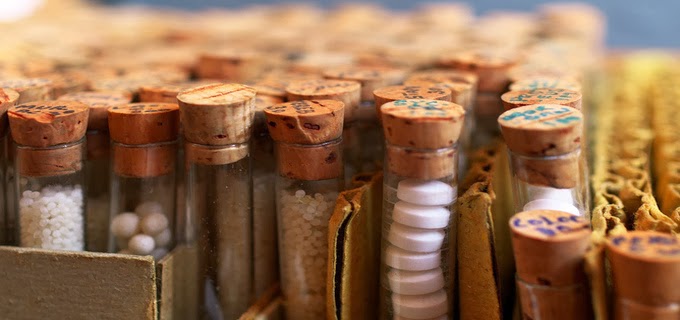China is prepared from the Cinchona tree. The well-known
antimalarial medicine quinine is prepared from the bark of the same tree. In homoeopathy, this is called Cinchona but
it is more commonly known as China. An effective and useful medicine, it is
extremely beneficial to annul
the bad aftereffects of malaria. It is used in the majority of
malaria cases. Cinchona overcomes the symptoms of malarial fever, which it
suppresses. In most malarial patients, the symptoms continue to exist in a
suppressed form. These after effects and suppressed symptoms of malaria are
amenable to treatment with homoeopathic
China. Sometimes, it can be useful in
the treatment of malaria fever as such. Normally in the cold weather, one does
not feel too thirsty. But when intense thirst is felt in cold weather and fever
becomes high, the patient feels thirsty again. In this particular symptom,
probably the best treatment would be China.
It has been repeatedly said that in the case of malaria, no medicine should
be given when the fever is coming on. The best time to administer medicine is
when the fever is subsiding or has subsided or there is an onset of a new
attack of fever. After the malarial attack, the malarial parasites settle in
the liver. Thus the ideal time to administer medicine is when the malarial
parasites are on their way to settle in the liver. Most of them will be
destroyed with treatment but if some happen to survive, they will definitely
become weakened. Similarly, the
treatment should be repeated after the next episode of fever. The statement I
have made seems philosophical, but it is a hard fact that I have personally
observed time and time again, and many other homoeopaths will agree with me.
China is also very useful in curing the weakness and other side effects of
malarial fever. Its patient is very sensitive to touch. Movement aggravates his condition. Cold air is unbearable.
All the nerves happen to become very excitable. Mental fatigue and
physical weakness are typical signs of China. The patient becomes
extremely irritable, careless, depressed and bad-tempered. He cannot concentrate. While talking to others, the conversation is
often interrupted. The associated severe headache that spreads down
the neck feels better by applying pressure and in a warm room.
There is a feeling of throbbing over the forehead. The patient does not
tolerate light pressure, yet at the same time he feels relief by deep pressure. Touch, a draft of air and a thump of
anything aggravate the headache. Darkish
blue rings form around the eyes. Due to the affliction of the liver, the eyes
become yellow and feel heavy. Vision becomes dim, and temporary blindness may
also ensue.
Digestion
is slowed down. Fruit and sour food hurt the stomach. Food is not digested properly. The abdomen
distends. China would be ideal to treat the inflammation of liver and spleen
with jaundice and pain at the gall bladder area, if the patient’s constitution
matches that of China. In this condition, China 30 should be used continuously over
a long period.
The China patient has a tendency to bleed. There is bleeding from
the
throat, nose and uterus, which is also associated with cramps. Periods start before their due time. Leucorrhoeal discharge is
mixed with blood. China would be an important remedy during childbirth when
labour pains stop due to bleeding and convulsions start, if the other symptoms
of the patient are also of the nature of China. Postpartum bleeding continues
for a longer period and smells foul. The
arms and legs of a China patient hurt as if sprained and jolted.
The tonic contractions of the muscles, like epilepsy, and the
paralytic weakness of the affected part is also a symptom
of China. There is a rush of blood
towards the head, ringing in
the ears and blackout in the eyes. In the state of commotion, the
patient becomes unconscious. The patient feels restless and sleepless due to
weakness after losing blood. In women, after bleeding and due to nursing the child,
anaemia develops. They sweat at night. The skin feels cold. One hand feels cold and the other warm. The
hands and feet of China feel weak and shaky. The gums swell and the teeth become loose, resulting in a
severe pain on chewing, as if the teeth have become too long. Taste
is bitter. Food also feels bitter or extremely salty in taste. Thereby, the
patient hates food. Milk upsets the stomach. The associated chronic form of diarrhoea is aggravated at
night. Unlike China, the diarrhoea of Petroleum starts during the day and stops
before the night sets in.
In China, the abdomen becomes distended but the flatus
does not smell. This particular symptom is saliently described in
homoeopathic books





